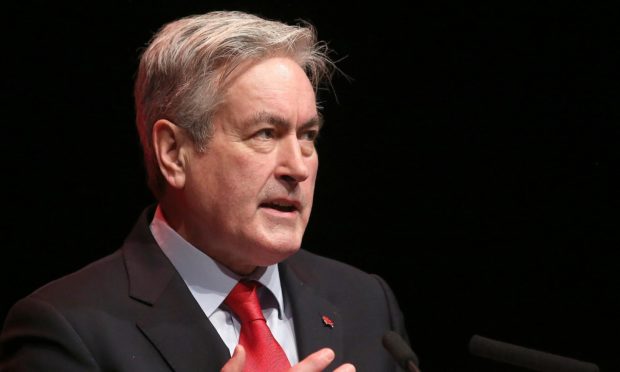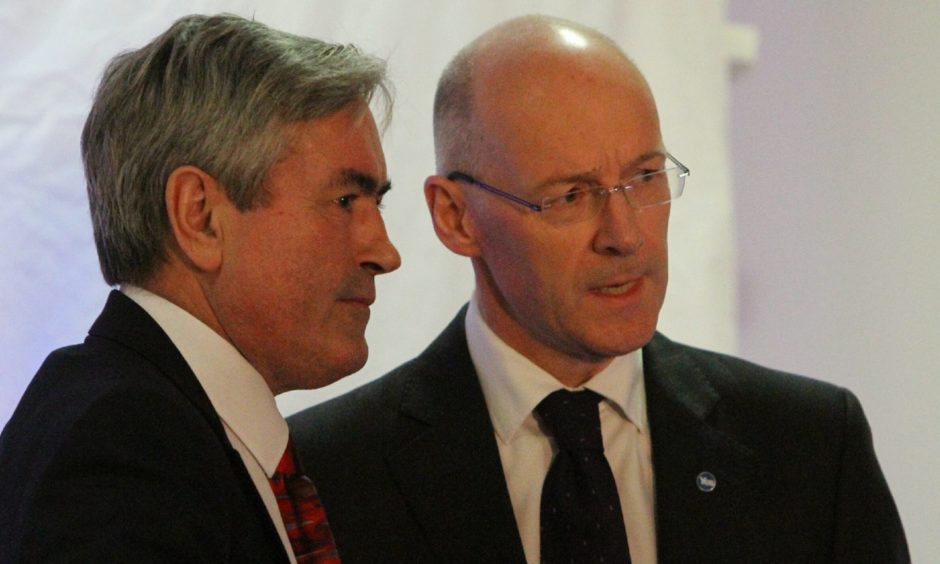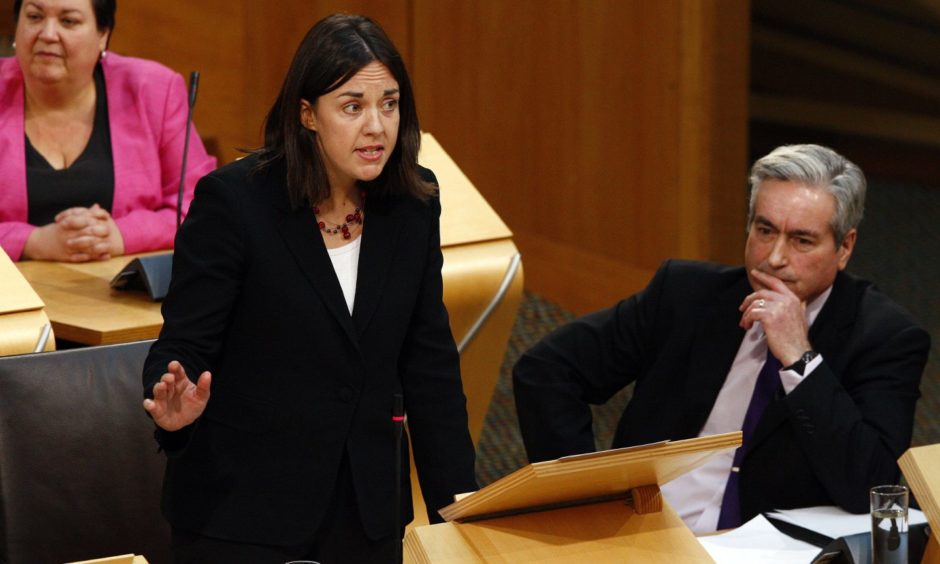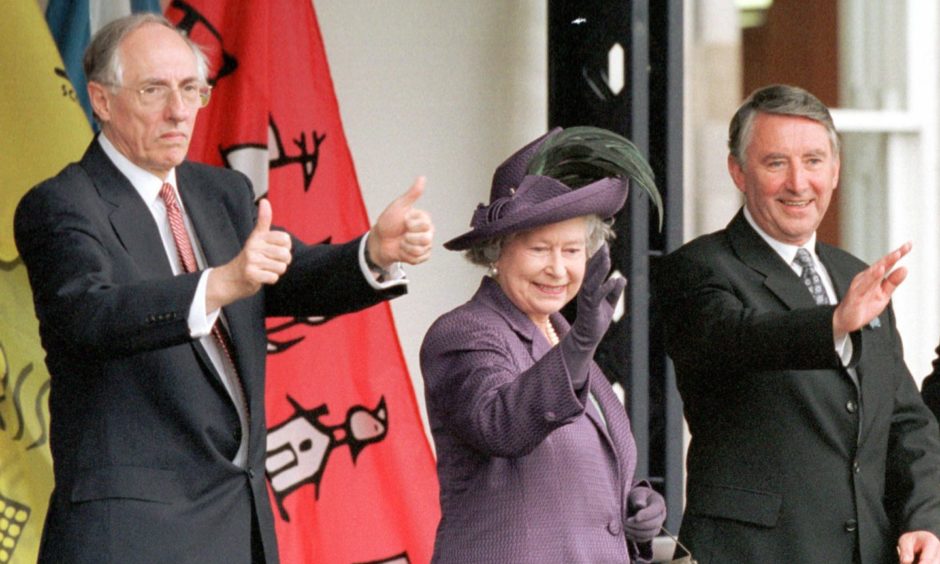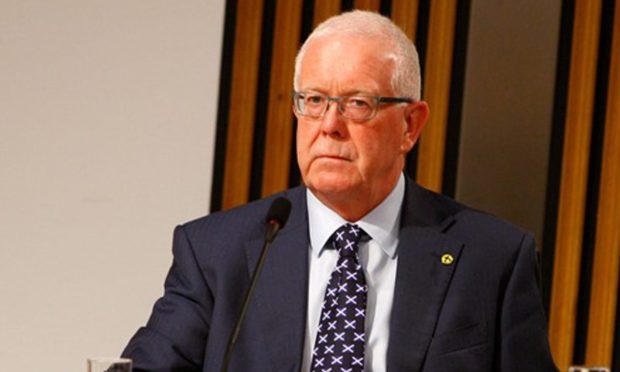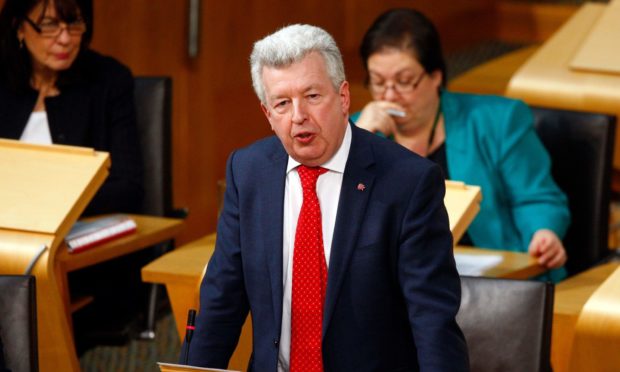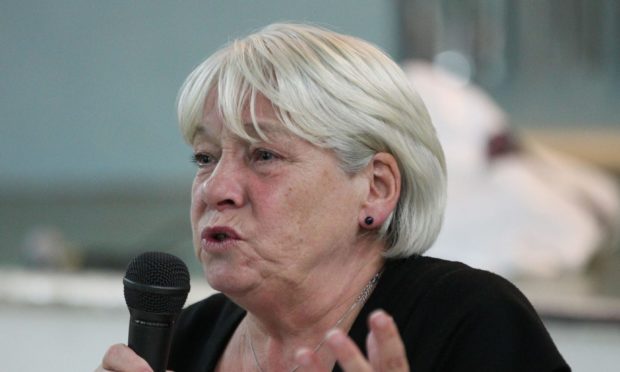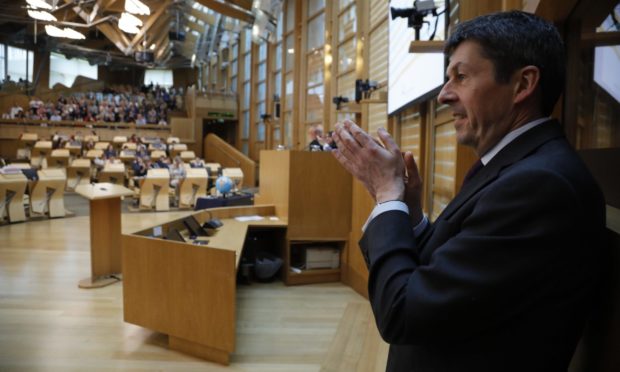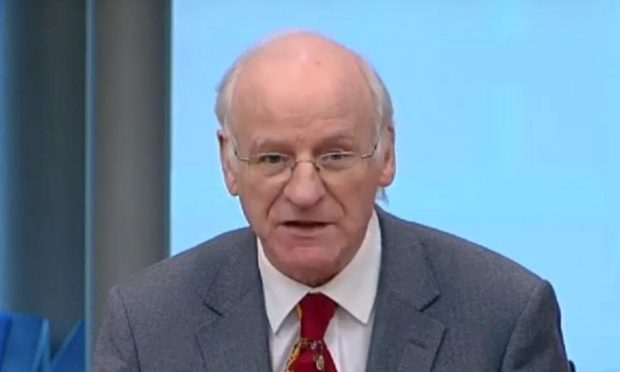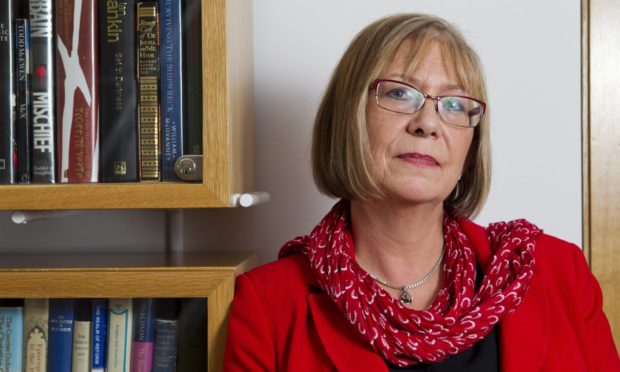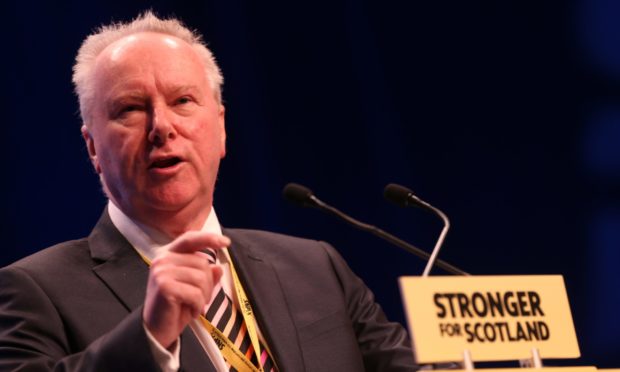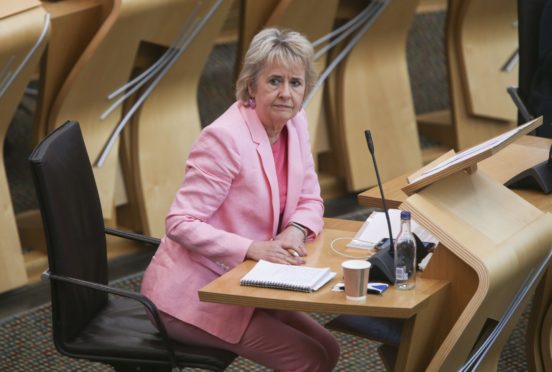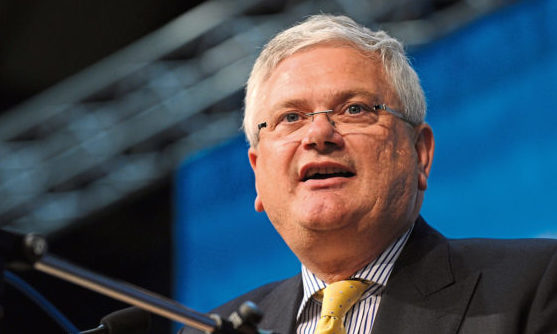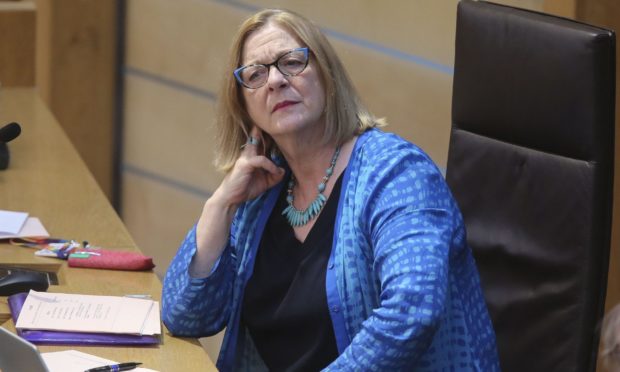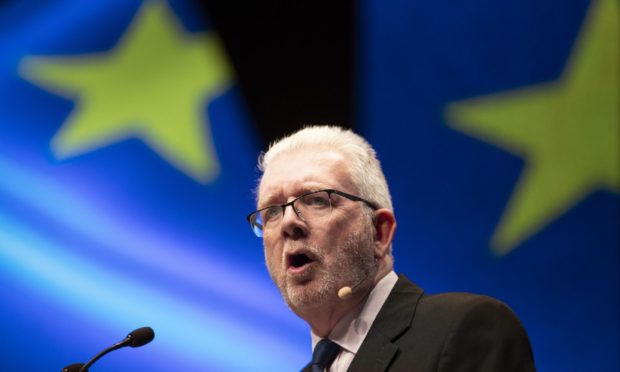The 2014 independence referendum has left the parliament in a “more fractious place”, according to former Scottish Labour leader Iain Gray.
Ahead of this year’s Holyrood election, a dozen MSPs elected to the Scottish Parliament in 1999 have announced they will stand down, marking the end of an era for some high-profile parliamentarians.
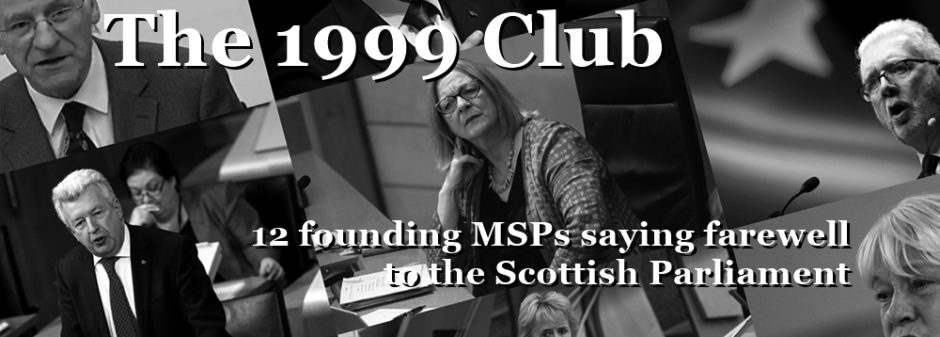
Iain Gray, who served as leader of Scottish Labour between 2008 and 2011, and is a member of the so-called 1999 club, believes the “tone” of the parliament has changed over the last two decades.
This has left the national institution in a “more fractious place” with “less sense of a shared purpose”, with debates around the constitution dominating the ability of the parliament to enact meaningful change.
“All of Scottish politics is now viewed through the prism of division for or against independence and, in my view, that’s not been a positive thing for the country and it has left the country very divided and it continues to be divided,” he said.
“There was always divisions about how we should go forward and what the right policies were but I think there’s a fractiousness now to politics and the parliament that there maybe wasn’t in 1999 and I think that’s disappointing.”
He believes that while the Scottish Parliament took forward some “transformational legislation” in its early days, including on Freedom of Information and the land reform act, this has stalled because “so much of our time is spent either actually arguing about the constitution or arguing about other things but in a way that means we’re really using it as a proxy for the constitution”.
He added: “We have had a government for 13 years now that don’t really believe in the power of the Scottish Parliament to transform Scotland.
“Their fundamental belief is: our parliament isn’t powerful enough to do that and although I think they do their best on a day-to-day basis in many ways, fundamentally they really don’t have confidence in the institution itself. That’s their reason for being and I think that has held us back.”
Mr Gray describes it as “no great admission or revelation” to say the Scottish party has found it “difficult to negotiate their place in that since 2014”.
‘I felt I had let people down’
The 63-year-old was first elected to the Scottish Parliament in 1999 as MSP for Edinburgh Pentlands.
After being defeated by former Scottish Conservative leader David McLetchie at the 2003 election, he left Holyrood to work as a special adviser to Alistair Darling, who was under-secretary of state at the Scotland Office.
He later returned to the Scottish Parliament in 2007 to serve as MSP for East Lothian, a seat he has held ever since.
Mr Gray’s most high-profile appointment was leading Scottish Labour from 2008 until 2011 but this was to come to a sudden end after the party suffered its worst electoral performance in Scotland in 80 years, with the party losing seven of its MSPs.
The Labour MSP, who announced he would resign as leader after the crushing defeat in 2011, said he felt he had “let people down”, and counts it as his biggest personal regret that he did not succeed in leading his party to victory that year to become first minister of the country.
He added: “It’s not a regret that wakes me up in the middle of the night but in terms of my own career, I suppose it’s my biggest regret.
“I don’t regret for a moment having been leader because it’s a huge privilege but it was very tough, the way things turned out.
“A lot of really good friends and colleagues lost their seats in that election and the toughest thing was calling them after the election to say sorry to them, I suppose, but it didn’t mean that much when they’d lost their own jobs and careers.”
The first parliament stands out as a particular highlight for Mr Gray as he was asked to take up a junior minister role by former First Minister Donald Dewar, followed by two roles in the cabinet under Jack McConnell.
He said: “That first parliament stands out for me because I was part of the government. I think if you ask any MSP or MP why they’ve got into politics they would probably all give you the same answer, which is that they want to make Scotland better.
“They disagree about what we should do to make Scotland better but over the years having worked with hundreds, if not thousands of politicians, I think they all have that purpose in mind.”
‘Proud I had played a part’
One particular achievement that stands out for Mr Gray was during his time as a junior health minister, when he inherited a review on how the government best supports people with learning disabilities.
He said: “We closed down the long-stay hospitals and made it possible for almost all people with learning disabilities to live in their own home, with their own tenancy and the support that they needed to do that instead of being shut away from the community.
“A number of people in my family have worked in some of those long-stay hospitals and for years after, when I was out with my wife, who worked at Gogarburn Hospital in Edinburgh, for example, we’d bump into someone we knew that she’d worked with in the long-stay hospital who was now living their own life in a flat with the support they needed to do that.
“I was always proud I had played a part in making that happen.”
Biography
Name: Iain Gray
Age: 63
Party: Scottish Labour
Member: East Lothian
Born: Edinburgh
Education: Studied Physics at Edinburgh University before training as a teacher at Moray House College of Education
Career: Spent seven years as a maths and physics teacher before spending 12 years with Oxfam as campaigns director
Political career: He has held four different ministerial posts, including Enterprise, Transport and Lifelong Learning. He also spent four years as a special adviser to then-Secretary of State for Scotland Alistair Darling. Leader of Scottish Labour (2008-2011). Later served as Shadow Cabinet Secretary for Finance between July 2013-December 2014 when he became Shadow Cabinet Secretary for Education and Lifelong Learning
‘It just doesn’t get any better than this, does it?’
Recalling the reconvening of the new Scottish Parliament on May 12 1999, Mr Gray said it was an “enormous privilege” to be one of the first 129 MSPs.
“One of the things I always remember summing it up, after we had the ceremonies in the parliament and Donald Dewar had made that famous speech, we were outside on a lovely sunny day, there was a parade down the Royal Mile of children from every constituency in Scotland,” he said.
“And I was standing watching that with a colleague, who isn’t in the parliament now, we were chatting and he said to me ‘it just doesn’t get any better than this, does it?’ and just as the words came out of his mouth Concorde and the Red Arrows flew over us and he burst into tears and it was just so emotional and such a positive day.”
The 63-year-old said it is the “march of time” that is behind his decision to retire next year, rather than “disaffection with the parliament or politics”.
As a lifelong Labour Party member, the veteran politician expects to be active in his local branch but plans to spend his upcoming free time with his wife, Gill, who has already retired, playing more golf and helping his wife with training guide dog puppies.
He said: “Anybody who comes to retirement age has mixed feelings on stopping what they’ve been doing for quite a long time but, equally, I think I’m looking forward to the opportunity to spend time on other things.”
The veteran politician leaves at a time of global uncertainty, with the Covid-19 pandemic dominating the political landscape.
Mr Gray describes it as an “enormous test” for government and while he thinks the UK Government has “pretty comprehensively failed” on that, he also believes the Scottish Government has fallen short on some “significant elements”, including discharging elderly people from hospitals to care homes.
Mr Gray said: “It is testing the relationship between parliament and government at the moment. Parliament is finding it hard to hold government to account in a way that is transparent.
“Where we get to post-pandemic I don’t really know and it depends a little bit on the degree to which the first minister and her government recognise that they are accountable to parliament and perhaps change the way they’re going about this.”
